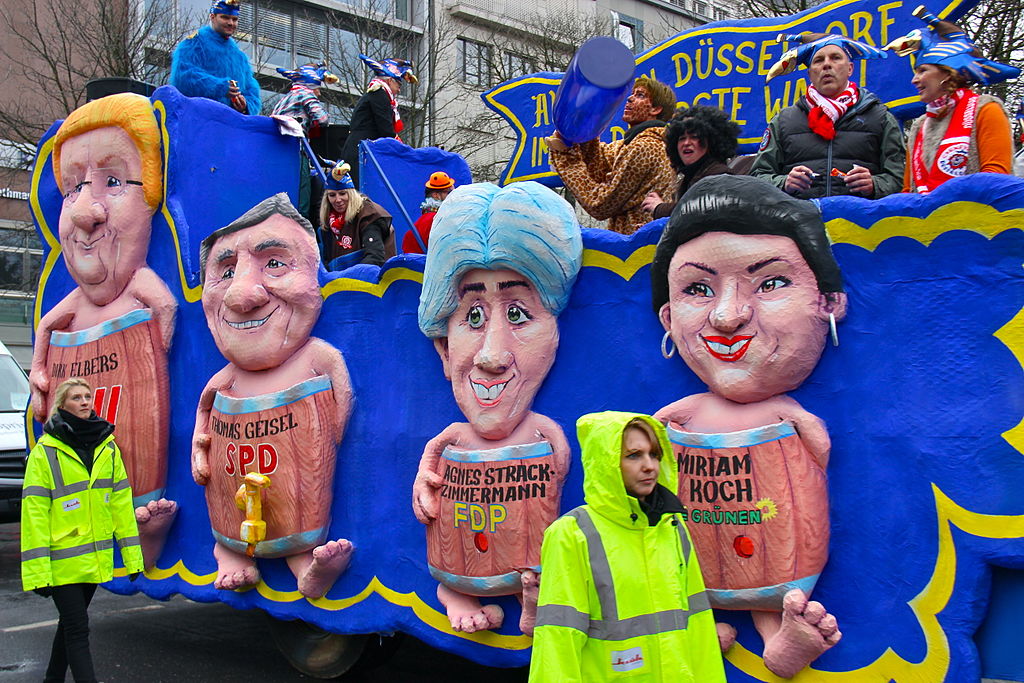2.1 Wie entwickelt sich die Identität eines Menschen?
4 min read•june 18, 2024
AP German 🇩🇪
29 resourcesSee Units
Wie entwickelt sich die Identität eines Menschen?
- Der Begriff „Identität“ kommt aus dem Lateinischen („idem“ = derselbe, dasselbe).
- Wenn wir von der Identität eines Menschen sprechen, meinen wir einerseits das, was einen Menschen im Kern ausmacht aber auch das, was uns zu einer einzigartigen Persönlichkeit macht, die sich von allen anderen Menschen unterscheidet.
- Identität bezieht sich also auf das, was uns zu einer individuellen Persönlichkeit macht, die es—unter derzeit 7 Milliarden Menschen auf diesem Planeten—genau einmal gibt. Identität ist die Voraussetzung für Individualität (lat. in-dividuum = das Unteilbare)
- Unsere Identität entwickelt und verändert sich im Lebensverlauf (Identitätsentwicklung, Identitätskrisen). Dabei fragen wir uns immer „Wie sehe ich mich selbst?“ und „Wie werde ich von meinen Mitmenschen gesehen.
Hauptsache sollten wir vor allem auf folgende Fragen Antworten finden: 1. Wer bin ich? 2. Was will ich mit meinem Leben anfangen? 3. Welche Werte sollen mein Leben bestimmten ? 4. Woran glaube ich?
Was bedeutet es, Deutsch zu sein?
There are a lot of stereotypes about Germans, like that they drink a lot of beer (which is true), they are hardworking and punctual (which is also true), and that the rate of unemployment in Germany is very low (true again).
In Germany, 60-65% of people recognize themselves as Christians, and 34% of which as Catholics. There is also a Muslim minority of about 4%. A number as high as 28% do not identify themselves as having any religion or belonging to one other than Christianity or Muslim.

Image taken from platform.globig.co
Germany is one of the leading nations when it comes to reading. German publishers publish around 94 thousand new books each year, and the International Frankfurt Book Fair, which is the most important book event in the world, is held in Germany. The first known book was printed in Germany and so was the first-ever magazine. The first book ever was the Gutenberg Bible. It was printed in Latin in 1455 by Johannes Gutenberg.
According to research conducted by Allensbach Media Market Analysis, 44.6% of the German population read a book at least once a week, while 58.3% of Germans buy at least one book per year.
Music still plays a tremendous role for Germans today. Some of the world’s most renowned classical composers like Bach and Beethoven have close ties to Germany. Other famous composers from Germany are Brahms, Schubert, Handel, Telemann, and Orff.
Nowadays, Germany is home to many music festivals, from electronic music to hip-hop and rock & roll. The largest music festival in Germany, which is also one of the largest in the world, is the Rock am Ring festival, which gathers artists and performers, as well as music fans from all over the world.
Germans are known to be very bureaucratic people, and for good reason, but they also know how to have fun and enjoy life. Germany celebrates carnivals and festivals every year during which whole cities engage in all-out parties and colorful celebrations. The carnivals have a long history in Catholicism, and today they are celebrated by street parades of people wearing costumes and masks. There are a variety of carnivals and festivals celebrating all aspects of life and joy.

Image taken from german-way.com.
Sports play an extremely important role in Germany. It is estimated that around 27,000,000 Germans are active members of sports clubs while another 12,000,000 people play sports for pleasure. The Bundesliga, which is a German football (soccer, not American football) championship, attracts the second-highest average attendance of any professional sports league in the world. The German National Football Team remains one of the strongest football teams in the world and die Mannschaft has won four World Cups (1954, 1974, 1990, 2014) so far.

During the periods of championships, whether it is the FIFA World Cup or the UEFA Champions League, huge screens are set up in city squares, bars, cafes, and restaurants, where children and grandmas and everyone else in between gather to watch the matches while drinking beer and eating sausages.
One of the most endearing traits of the German people and culture is that they like to take care of each other. It is not uncommon to see lost items hung on trees in parks or near paths. If you're ever in a park in Germany, keep an eye out for low-hanging items in trees. This makes the process of finding things a lot easier when retracing steps.
Die Arbeitkultur und Arbeitidentät: Why Germans Work Fewer Hours But Produce More
- Work time means work time: Germans have a zero-tolerance policy for messing around at work. They are there to get their work done.
- German business culture is intensely focused on direct communication. Many Americans value small talk and keeping the atmosphere upbeat, but Germans are really direct. Again, they are there to get their work done.
- The workday is for working and time outside of work is meant to be free from anything business/work related. In 2014, German employment minister Andrea Nahles considered new “anti-stress” legislation which would ban companies from contacting employees outside of work hours.
- Germans know how to get away from it all with their legally required 20 days of paid vacation. Many salaried employees receive 25-30 paid days off! This time away from work is often enjoyed as a family by renting an apartment near the sea or taking a long trip to a new city.

Image taken from spiegel.de
Browse Study Guides By Unit
👨👩👧Unit 1 – Families in Germany
🗣Unit 2 – Language & Culture in Germany
🎨Unit 3 – Beauty & Art in Germany
🔬Unit 4 – Science & Technology in Germany
🏠Unit 5 – Quality of Life in Germany
🌪Unit 6 – Challenges in Germany
📚Study Tools
🧐Exam Skills

Fiveable
Resources
© 2025 Fiveable Inc. All rights reserved.